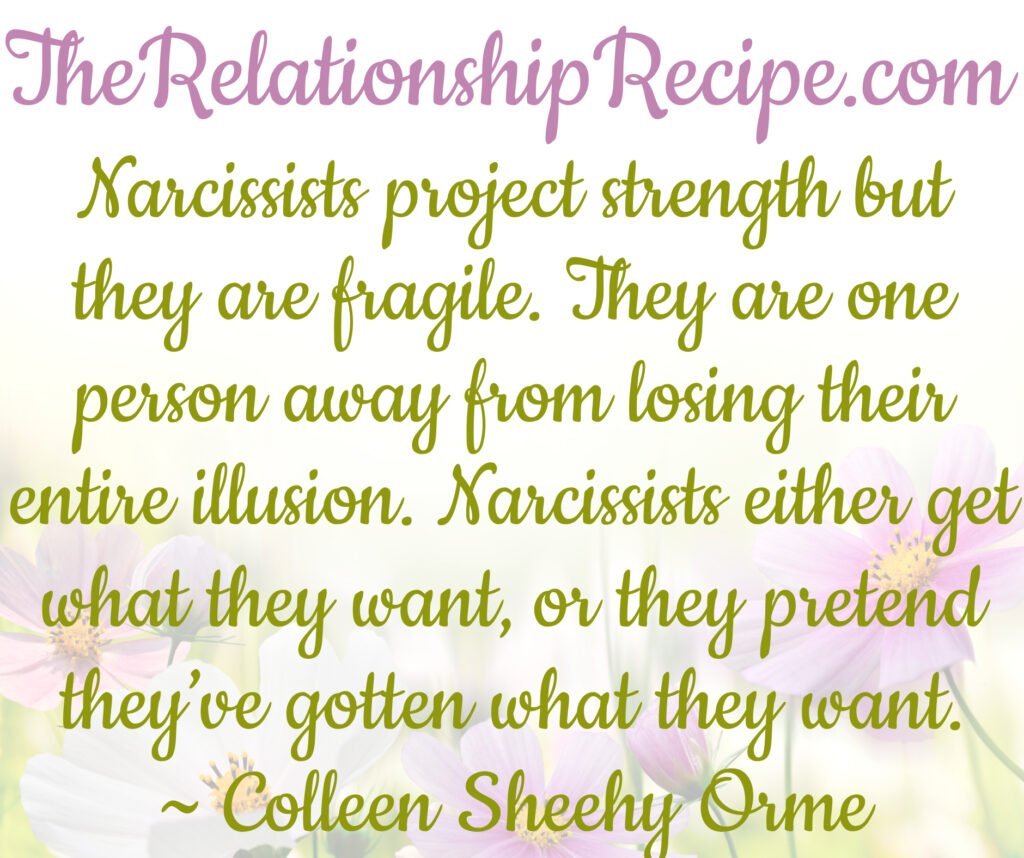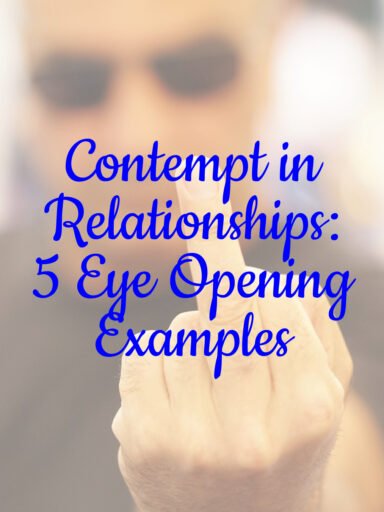Narcissism, a term derived from the Greek myth of Narcissus, speaks volumes about an individual’s self-absorption, grandiosity, and inability to empathize with others.
When it comes to truth, narcissists seem to have an uncanny ability to twist, manipulate, or outright disregard it. When their very definition of “success” is control and power, they can’t let a pesky thing like truth and honesty get in the way. They’ve got bigger fish to fry!
Today, we dive deep into the psyche of the narcissistic mind, discussing why truth holds no value for them, what really goes on in their consciousness, the big five traits of narcissism, and the repercussions of telling a narcissist the truth, as well as how to deal with their lies.
Why Can’t the Narcissistic Mind Accept the Truth?
The inability of narcissists to accept the truth stems from their fragile ego and deep-seated insecurity. Truth, particularly when it contradicts their inflated self-image, poses a significant threat to their delicate façade of grandiosity.
Admitting to faults or shortcomings would shatter the illusion they’ve meticulously constructed around themselves. instead of acknowledging reality, narcissists resort to denial, gaslighting, or deflection to preserve their sense of superiority and control.

What Really Goes on in the Mind of a Narcissist?
Within the labyrinthine corridors of the narcissistic mind, a constant battle rages between the insatiable need for admiration and the fear of exposure. Beneath the surface bravado lies a profound sense of emptiness and insecurity, masked by an exaggerated sense of self-importance.
Every interaction becomes a calculated move to maintain their illusion of perfection, often at the expense of others’ feelings and wellbeing. Unable to form genuine connections, narcissists view relationships as mere tools for validation and manipulation, devoid of empathy or reciprocity.
In order to understand the narcissistic mind, we need to know what their 5 biggest traits are that drives their insatiable needs and world outlook are, especially in relationships.

The Big Five of Narcissism and Why the Truth Holds No Value to Them
Psychologists often categorize narcissistic traits into five key dimensions:
- Grandiosity: Narcissists possess an exaggerated sense of self-importance and a constant craving for admiration.
Truth challenges this inflated self-perception, threatening their grandiose facade.
Admitting to the truth would puncture their illusion of superiority, leaving them vulnerable to feelings of inadequacy. To preserve their inflated ego, narcissists manipulate or deny the truth, ensuring their grandiose self-image remains unchallenged.
They prioritize maintaining control over how they are perceived, using deception to reinforce their idealized self-concept and garner admiration from others.
Thus, truth holds no value for narcissists, as it jeopardizes their grandiose narrative and undermines their fragile sense of self-worth.
2. Need for Admiration: Narcissists seek constant validation and admiration from others to bolster their fragile self-esteem.
Truth poses a threat to this need, as it may reveal imperfections or vulnerabilities that could undermine their quest for admiration.
To maintain their mask of superiority, narcissists fabricate or manipulate the truth, crafting narratives that reinforce their idealized self-image. By garnering praise and admiration through deception, they perpetuate their illusion of grandiosity and shield themselves from the harsh realities of their insecurities.
Thus, truth holds no value for narcissists as it jeopardizes their relentless pursuit of external validation and exposes the fragility of their self-esteem.

3. Lack of Empathy: Narcissists display a profound inability to empathize with others’ emotions or experiences.
Truth challenges this lack of empathy by revealing the impact of their actions on others. However, narcissists prioritize their own needs and desires above all else, disregarding the feelings or perspectives of those around them.
They manipulate or deny the truth to avoid facing the consequences of their behavior, regardless of how it affects others. By prioritizing self-interest over empathy, narcissists perpetuate a cycle of manipulation and deceit that undermines genuine human connection.
Thus, truth holds no value for narcissists as it threatens to expose their profound lack of empathy and highlights the emptiness of their relationships.
4. Sense of Entitlement: In the narcissistic mind, they believe they are inherently deserving of special treatment and privileges, regardless of merit.
Truth challenges this sense of entitlement by revealing the reality of their actions and accomplishments. However, narcissists cling to their belief in their own superiority, refusing to acknowledge any evidence to the contrary.
They manipulate or distort the truth to justify their entitlement, fabricating narratives that reinforce their belief in their own exceptionalism. By prioritizing their own desires and disregarding the truth, narcissists perpetuate a cycle of entitlement that undermines genuine meritocracy and accountability.

Thus, truth holds no value for narcissists as it threatens to expose the hollowness of their entitlement and the emptiness of their achievements.
5. Exploitative Behavior: Narcissists often exploit and manipulate others to fulfill their own needs and desires, without regard for the consequences.
Truth challenges this exploitative behavior by revealing the harm caused to others. However, narcissists prioritize their own gratification above all else, viewing others as mere tools for their own gain.
They manipulate or distort the truth to justify their exploitative actions, portraying themselves as deserving of whatever they desire. By disregarding the truth, narcissists perpetuate a cycle of manipulation and exploitation that undermines genuine human connection and empathy.
Thus, truth holds no value for narcissists as it threatens to expose the emptiness of their relationships and the damage caused by their exploitative behavior.

What Happens When You Tell a Narcissist the Truth?
In the narcissistic mind, the truth is akin to challenging their carefully constructed reality. Instead of acknowledging their faults or shortcomings, narcissists may react with anger, defensiveness, or even rage.
They may resort to gaslighting tactics, attempting to distort or invalidate your perception of reality to maintain their sense of superiority. In extreme cases, exposing the narcissistic mind to the truth may result in retaliation or the breakdown of the relationship, as they struggle to preserve their facade at any cost.

Do Narcissists Tell the Truth?
While narcissists may occasionally tell the truth when it serves their agenda, their words are often laced with manipulation or distortion. Lies and deceit are tools in the narcissist’s arsenal, employed to maintain control, manipulate others, or preserve their self-image.
When faced with a narcissist’s lies, it’s important to trust your instincts and establish firm boundaries. Refuse to engage in their manipulative games or be drawn into their web of deceit. Instead, focus on protecting your own mental and emotional well-being, seeking support from trusted friends or professionals if necessary.
The narcissistic mind is a labyrinth of insecurity, grandiosity, and manipulation, where truth holds little value in the face of maintaining a fragile sense of self. Understanding the reasons behind why truth holds no value for them, is essential for navigating relationships with these individuals and protecting oneself from their toxic influence.

How to Deal With a Narcissist’s Lies?
By recognizing the signs of narcissism, setting firm boundaries, and prioritizing self-care, one can mitigate the damaging effects of interacting with a narcissistic mind.
Navigating a relationship with a narcissist can be emotionally taxing, especially when confronted with their lies and manipulation. Here’s an expanded explanation on how to deal with a narcissist’s lies while safeguarding your own mental health:

- Recognize the Pattern: Understand that lying is a common trait among narcissists. They may distort the truth to maintain their mask of superiority or to manipulate others for their own gain. Recognizing this pattern can help you detach emotionally from their deceitful behavior.
- Set Boundaries: Establish clear boundaries to protect yourself from the effects of the narcissist’s lies. Clearly communicate what behavior is unacceptable and enforce consequences if those boundaries are crossed. This might include limiting communication or distancing yourself from the individual when necessary.
- Focus on Your Well-being: Prioritize your own mental and emotional health. Engage in self-care activities that promote relaxation and stress relief. Surround yourself with supportive friends and family members who can provide emotional validation and perspective.
- Avoid Engaging in Their Games: Refuse to be drawn into the narcissist’s manipulative tactics. Avoid arguing or attempting to reason with them about their lies, as this often leads to further gaslighting or emotional manipulation. Instead, maintain your composure and disengage from interactions that are not productive or healthy.
- Seek Professional Support: Consider seeking guidance from a therapist or counselor who specializes in narcissistic personality disorder. A mental health professional can offer strategies for coping with the challenges of being in a relationship with a narcissist and provide personalized support tailored to your specific situation.
- Practice Assertiveness: Assert yourself confidently when confronting the narcissist about their lies. Use “I” statements to express how their behavior impacts you personally, rather than placing blame or engaging in accusatory language. Maintain a calm and composed demeanor, and avoid being drawn into emotional conflicts.
- Create a Support Network: Surround yourself with a supportive network of friends, family, or support groups who understand the dynamics of narcissistic relationships. Sharing your experiences with others who have been in similar situations can provide validation and encouragement, reducing feelings of isolation and self-doubt.
- Consider Your Options: Evaluate the long-term viability of the relationship and whether it is healthy for you to remain involved with a narcissist who consistently lies and manipulates. Ultimately, prioritize your own well-being and consider whether maintaining the relationship aligns with your values and goals.

Dealing with the narcissistic mind and the lies they tell in a relationship requires resilience, self-awareness, and a commitment to prioritizing your own mental and emotional health. By setting boundaries, seeking support, and focusing on your well-being, you can navigate the challenges of being in a relationship with a narcissist without losing YOUR mind.
https://survivingnarcissism.tv/8-reasons-narcissists-dont-care-about-truth/
This post may contain affiliate links. I earn from qualifying Amazon purchases at no extra cost to you.




